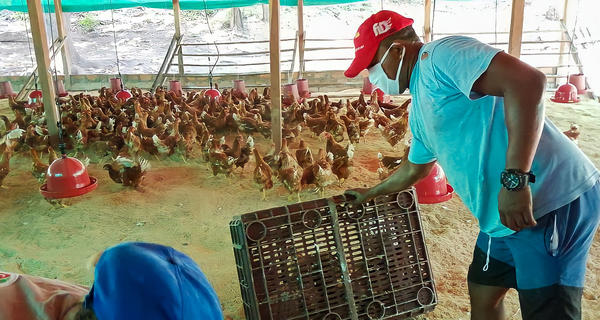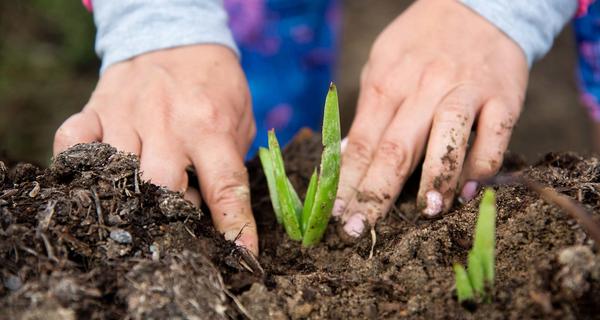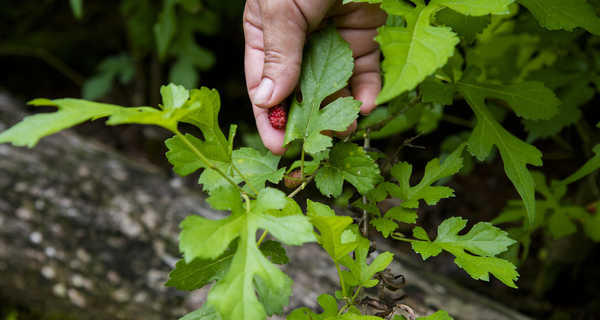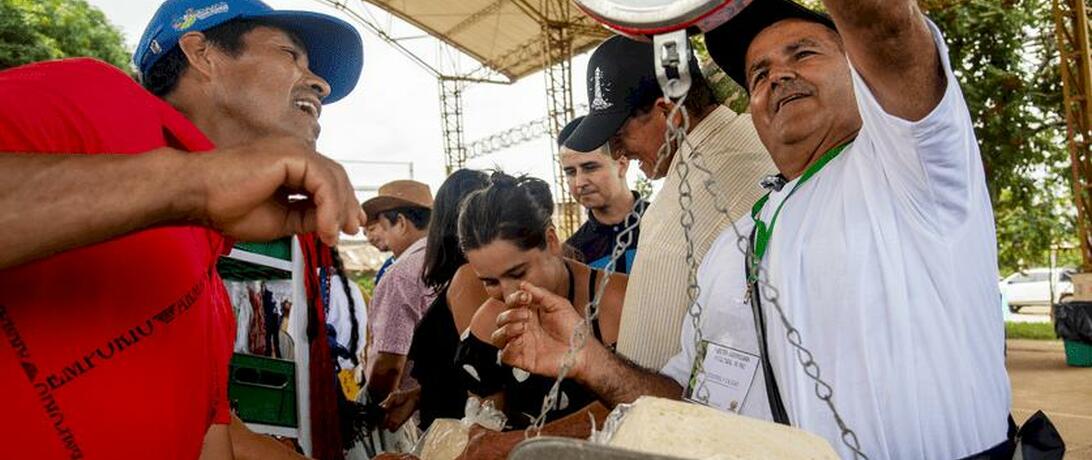
During 2022, the Rural Alternative Schools achieved the highest sales in their 6 years of life, thanks to the commitment to peace of the peasant and reincorporated communities with which we work, as well as the effective collaborative work model that we have developed with them.
An unprecedented achievement
The Rural Alternative Schools (ERAs) began as laboratories for territorial collaboration, where ex-combatants and campesinos learned to work together on productive agricultural projects to support their families and eventually sell their surpluses. The first of these began its work in 2016 in the municipality of Miranda, in northern Cauca.
Since then, the ERA model has expanded to more than 20 locations throughout Colombia and has been strengthened with the knowledge, work, and capital contributed by a wide variety of public, private, community, local, national, and international partners. Today, the ERAs have established themselves as collaborative platforms where communities find ways to turn the complexities of their territories into opportunities to rebuild trust affected by the conflict, improve the productivity of their lands, and develop commercial ventures with national and international reach.
What began as a series of experiments has gradually transformed into a network of profitable collective ventures. Between 2018 and 2020, the ERAs managed to sell more than $1.88 billion pesos; in 2021, they reached sales of $2.1 billion pesos; and in 2022, with a total of $4,570,234,596 pesos sold, the total accumulated sales in the previous four years were surpassed. In other words, it took four years for ERAs to sell their first million dollars, while today it only takes one year to do so (even when considering the fluctuation in the dollar price).
Products like coffee, cocoa, honey, fish, pork, and sacha inchi are among the most popular in sales. These production units have received continuous support along several links of the production chain, starting with training for cultivation, support for the construction of infrastructure, and adequate processing of the products; as will be seen below, they have also enjoyed special support in their marketing efforts.
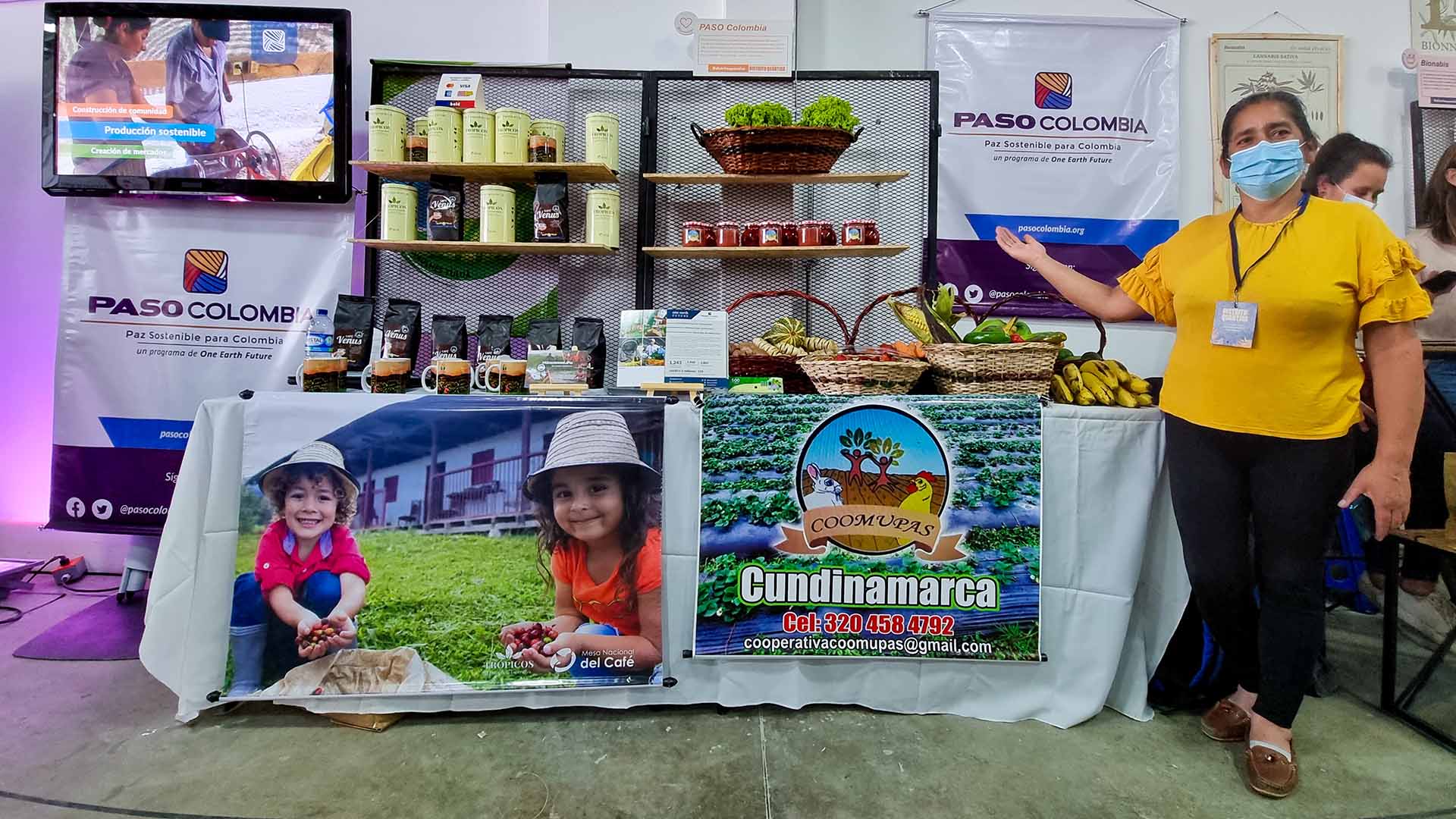
Democratizing markets, a key factor
One of the pillars of PASO Colombia's work has been the democratization of markets in the areas most affected by conflict and inequality. This strategy has been implemented through the establishment of farmers' markets, the generation of collaborative commercial partnerships, and the opening of agricultural and food stores managed by the members of the ERAs. In this way, alternatives have been generated that make it easier for campesino communities to sell their products under fairer conditions and cut down on middlemen.
People who live in areas farthest from major urban centers frequently have to travel several kilometers to obtain the products they need. Because of this, the new commercial scenarios that PASO is promoting are thoughtfully positioned within the same regions and are distinguished by offering quick commercialization routes. By doing this, they more closely match the demand that already exists in these markets with their product offerings.
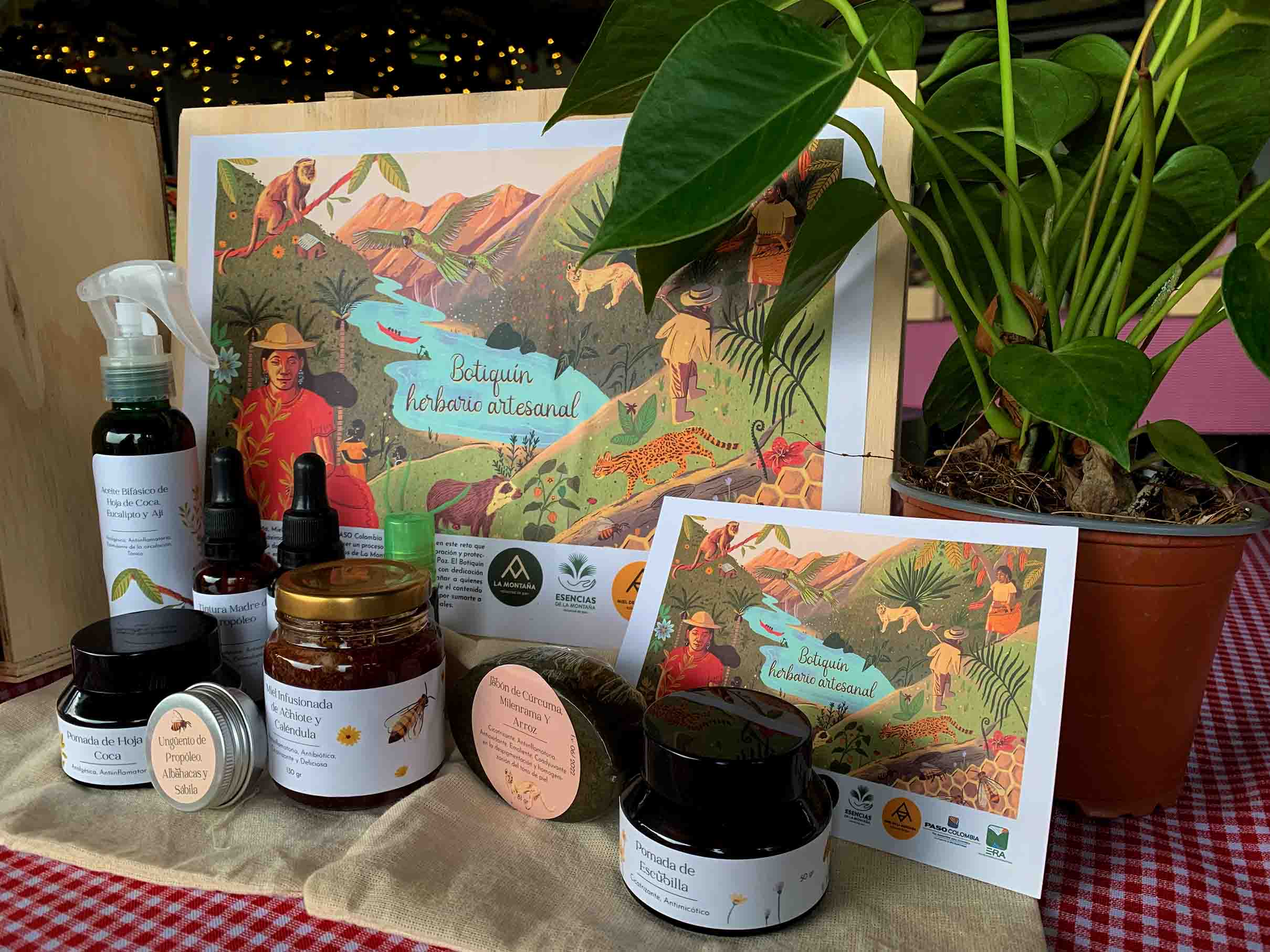
Commercial efforts are also accompanied by the strengthening of production factors that increase the competitiveness of the projects supported by the ERAs. To this end, we have trained and accompanied the communities in manufacturing animal feed and natural fertilizers from local raw materials, which has allowed them to take advantage of derivatives from agricultural processes and generate substantial savings in raising their animals. Additionally, this has shielded the projects from external dynamics, such as the volatility of the dollar and the shortage of inputs caused by the pandemic and the war in Ukraine.
On the other hand, leveraging new resources to scale up ERAs' more robust production units has also prepared them to meet ever-increasing demands.
These developments have not only put the communities' technical skills to the test; developing their relational capacities is key to the success of ERAs as peacebuilding spaces. In this regard, the generation of trusting relationships through associative work and time spent together has been crucial. As we outlined back in 2021, in our first issue of Tracking Our Impact: within the ERAs "projects and connections that offer guarantees to improve their quality of life".
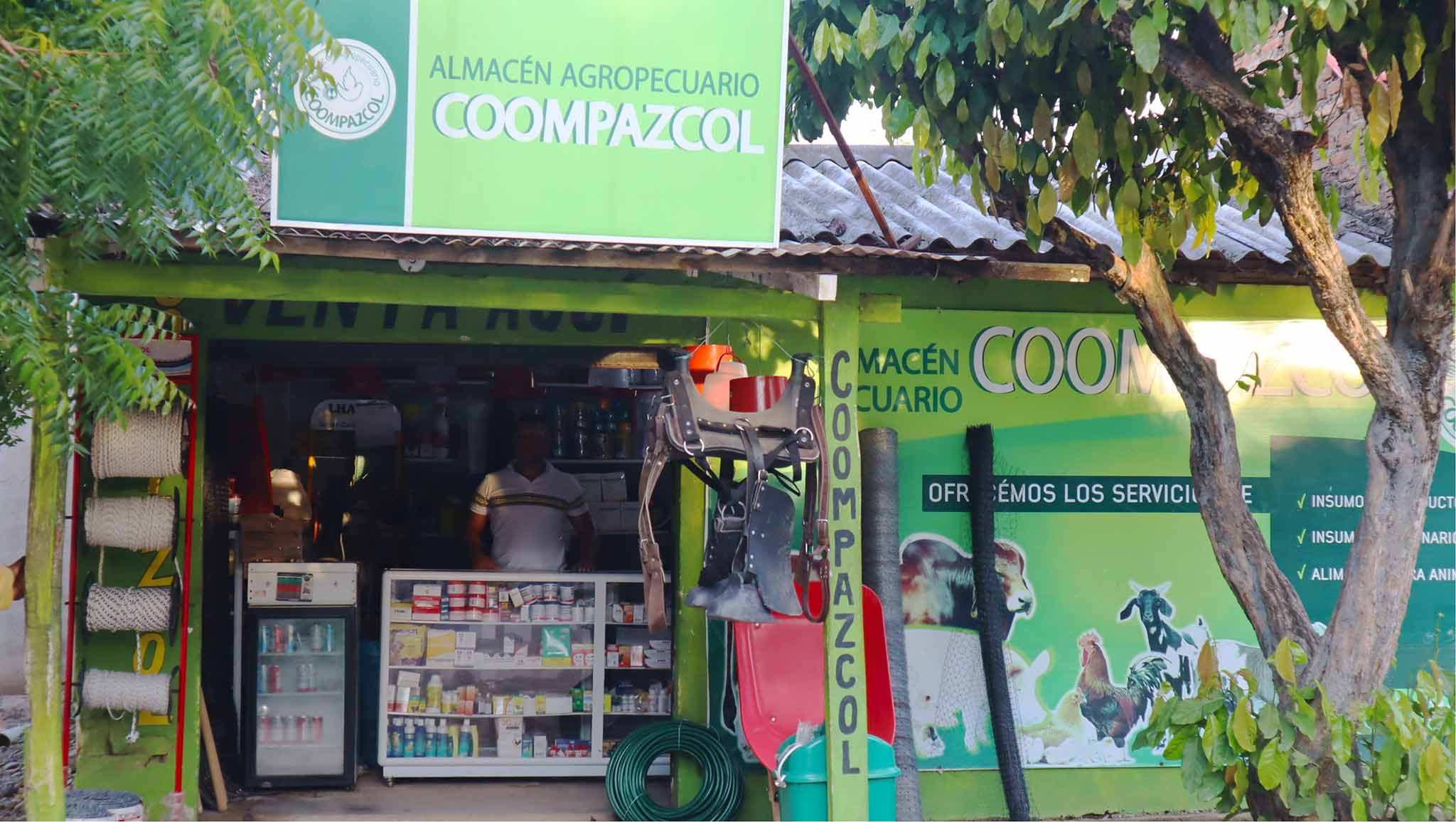
Photograph taken from COOMPAZCOL's Facebook profile.
ERA model expands into the future
The advantages of the ERA model have a broader impact than the locations they operate in. Its benefits are spreading to neighboring areas and involving more and more families, associations, leaders, participants, and partners, displaying an undeniable commitment from all these actors toward creating a peaceful countryside.
On the other hand, the lessons learned and working methods developed in the ERAs have proven to work successfully with other communities like Venezuelan migrants and families who switched from growing coca to legal products. This shows that this collaborative work model is mature enough to scale and have a positive, long-term impact in many of the regions most affected by conflict and poverty.
